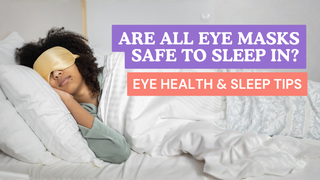When you see a blind person wearing sunglasses, you might wonder why they would need them. Understanding the reasons behind this common practice can help foster empathy and awareness. This article delves into the multiple factors that contribute to the use of sunglasses by visually impaired individuals.
Protection from UV Rays
Even though visually impaired people may not rely on their sight, their eyes are still susceptible to damage from ultraviolet (UV) rays. Prolonged exposure to UV rays can harm the eyes and surrounding skin, increasing the risk of conditions like cataracts and skin cancer. Sunglasses provide a necessary shield against these harmful rays, preserving the overall health of the eyes and skin.
Light Sensitivity
Even though visually impaired people may not rely on their sight, their eyes are still susceptible to damage from ultraviolet (UV) rays. Prolonged exposure to UV rays can harm the eyes and surrounding skin, increasing the risk of conditions like cataracts and skin cancer. Sunglasses provide a necessary shield against these harmful rays, preserving the overall health of the eyes and skin.
Physical Protection
Sunglasses offer a physical barrier against environmental factors such as dust, debris, and wind. These elements can irritate the eyes, causing discomfort or potential injury. For individuals who cannot see, avoiding eye injuries is particularly crucial. Sunglasses help to protect the eyes from unexpected physical impacts, ensuring their safety.
Aesthetic and Social Considerations
Wearing sunglasses can also be an aesthetic choice. For some visually impaired individuals, sunglasses help to conceal any visible eye abnormalities, which can make social interactions more comfortable for both the wearer and those around them. By maintaining a consistent appearance, sunglasses can reduce social awkwardness and make the wearer feel more at ease.
Psychological Comfort and Confidence
Sunglasses can boost self-confidence for many visually impaired individuals. Wearing them reduces self-consciousness, particularly in social settings. Sunglasses can provide a sense of normalcy and control over one's appearance, enhancing overall psychological comfort.
Privacy and Eye Movement
Blind individuals may experience involuntary eye movements, such as nystagmus, which can be distracting or unsettling to others. Sunglasses help to conceal these movements, preserving the wearer’s privacy and dignity. This is especially important in social and professional interactions, where maintaining eye contact and a composed demeanor are valued.
Types of Sunglasses Preferred by Blind Individuals
Polarized Sunglasses
Polarized lenses are particularly beneficial for reducing glare. This feature is especially helpful for those with light sensitivity, providing additional comfort in bright environments. Polarized sunglasses are a popular choice among visually impaired individuals due to their effectiveness in minimizing glare.
Prescription Sunglasses
For individuals with partial vision, prescription sunglasses combine vision correction with sun protection. These sunglasses help to improve visual acuity while shielding the eyes from harmful UV rays. This dual functionality makes prescription sunglasses a practical and essential accessory.
Wraparound Sunglasses
Wraparound sunglasses offer comprehensive protection from all angles, preventing peripheral light exposure. This design is ideal for visually impaired individuals who need maximum coverage to protect against environmental elements and intense light. Wraparound sunglasses ensure that the eyes are fully shielded, providing optimal comfort and safety.
The reasons why blind individuals wear sunglasses are multifaceted, ranging from protection against UV rays and environmental factors to light sensitivity, aesthetic considerations, psychological comfort, and privacy. Sunglasses play a crucial role in enhancing the overall well-being and confidence of visually impaired individuals.
By understanding the importance of sunglasses for blind individuals, we can foster greater empathy and consideration. Learn more about eye health and the various ways to protect and care for your eyes, ensuring they remain healthy and safe.








